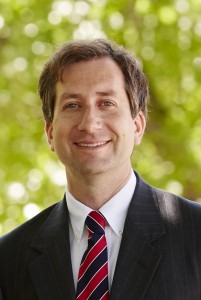An Expanded Water Law and Policy Initiative
We frequently say that Marquette Law School hopes to be a place of which the community remarks,“That’s where you take the hard problems, the ones that affect us all.” As we observe the course of events in California and other parts of the world, it seems difficult to imagine a problem more intractable or more universal—a problem harder—than ensuring the availability of fresh water for domestic, medical, agricultural, and industrial uses. Indeed, Pope Francis recently cautioned in an encyclical that water, which is “indispensable for human life,” is “a fundamental right,” and he called for all interested parties to engage in “an open and respectful dialogue” about relevant policies and laws. Closer to home, with Associate Dean Matt Parlow’s leadership, the Law School has been actively engaged in the Milwaukee regional water initiative since its creation last decade; more recently, the Law School has sought to respond to President Michael R. Lovell’s call for greater engagement by Marquette University with matters involving water.
In these circumstances, it is a great pleasure to announce an expanded Water Law and Policy Initiative which will seek to help establish the Law School and, more broadly, Marquette University as a center for study, exploration, discussion, and education concerning water issues. Using an interdisciplinary and collaborative approach, the initiative will seek, among other things, to assess the legal and regulatory aspects of water policy, to pursue opportunities for information exchange and collaboration within and outside the University, and to provide the means for those involved in Milwaukee’s water initiative to become better informed on legal and policy aspects of critical water-related issues.
I am also pleased to announce the appointment of David Strifling as the Initiative’s inaugural director. Dave is a Marquette lawyer (L’04) and Marquette engineer (L’00) with a Harvard master’s. He has served as an adjunct professor here for several years, practiced at Quarles & Brady, and previously taught at Temple University’s Beasley School of Law in Philadelphia. He has extensive practical experience in both environmental law and environmental engineering and holds active licenses in both disciplines, making him almost uniquely qualified to move this project forward in an interdisciplinary way; further background about Dave is available here. We are able to pursue this initiative because of support from the University’s Strategic Innovation Fund and from the Law School’s Annual Fund. Welcome, Dave.


